The X-Files Newbie Recaps: “Unruhe” & “The Field Where I Died” – “Even if I knew for certain, I wouldn’t change a day.”
Scully and Mulder investigate when a young woman named Mary goes missing outside a chemist’s. Her boyfriend is found in their car, stabbed through the ear, and the only evidence at the scene is a creepy passport photo showing Mary encircled by strange ghoulish figures. This is enough for Mulder to start speculating about “thoughtographs,” a kind of psychic experiment where a photographer projects images from his mind onto photos. Scully is—wait for it—skeptical, and points to heat damage and expired film as obvious explanations for the weird image.
Naturally, things are never quite that simple. A camera in Mary’s house prints the same image several times, and then Mary herself shows up at the side of road looking disorientated. Tests reveal she’s been lobotomised, and badly—she’s entirely unresponsive, and just keeps repeating the word “unruhe.” Scully, who took German in college, says this literally translates to “unrest” in English.
A second woman, Alice Brandt, then goes missing from her workplace. Her boss is found murdered in the same manner as Mary’s boyfriend. There’s no evidence at the scene, but Scully discovers that both crime scenes are close to construction sites overseen by the same company. She wonders if the killer might be an employee and follows this up while Mulder goes back to DC with the image of Mary. The Federal photo lab enhances the image in typically improbable fashion, revealing a man’s face and also a long, lean figure standing over Mary. Mulder examines its stance and wonders if it represents the killer, standing over her as if in judgement.
He calls Scully and updates her just as she’s speaking to the foreman at one of the construction sites. The foreman, Gerry Schnauz, is wearing plasterers’ stilts. When Mulder says the killer may either be very tall or make himself out to be, she glances at him suspiciously and says “unruhe.” Gerry attempts to bolt but she manages to corner and arrest him. In the process, she nips her hand on something in his pocket and discovers a long needle-like instrument, not unlike one used to perform lobotomies.
In questioning, our heroes discover that Schnauz has a history of paranoid schizophrenia. In 1980, he beat his father so severely that he ended up in a wheelchair, and in the same year his sister committed suicide. Mulder shows him the image of Mary, asking him if this is what he sees when he closes his eyes. Gerry becomes fidgety, referring to the ghoulish shapes as “howlers” and saying Alice is “safe.” They manage to get enough information out of him to trace Alice to a field, but she’s already dead. Scully is defeated and angry and unimpressed at Mulder’s distracted dwelling upon the word “unruhe,” but he’s convinced it’s significant in some way.
Back at the station, Gerry’s being processed. An officer takes a mugshot but when it prints, it shows the same officer dead with a gunshot wound to the head. While he stares at it, Gerry grabs his gun and shoots him. Mulder examines the photo later, noting the officer was shot through the throat and not the head, as in the picture. He theorises that Gerry wasn’t trying to “save” him. Scully comes in and says the chemist where Mary’s photo was taken has been robbed, and the owner has identified Gerry. They go to the chemist’s and Mulder inspects the passport photo booth. Scully worries that Gerry’s already chosen his next victim, as there are apartments all around the construction site where she found him. She goes out to get the car while Mulder prints the photos from the booth. Unfortunately, Gerry’s waiting under the car and stabs her with a syringe full of sedatives. Mulder’s photos print to show the same image as the one of Mary, except this time it’s Scully enveloped by ghouls. He runs outside and chases the car, but Gerry gets away with Scully.
When she comes to, she finds herself tied to a dentist’s chair in a dark room. Gerry is standing over her, rambling in German. She replies in German, saying she “has no unrest” and doesn’t need to be saved. Gerry says everyone does. He blames the “howlers,” saying they live inside your head and make you do things you don’t mean. He takes a Polaroid of her and then stops, wondering at the image. He asks her what it means, and Scully replies that it means he needs help.
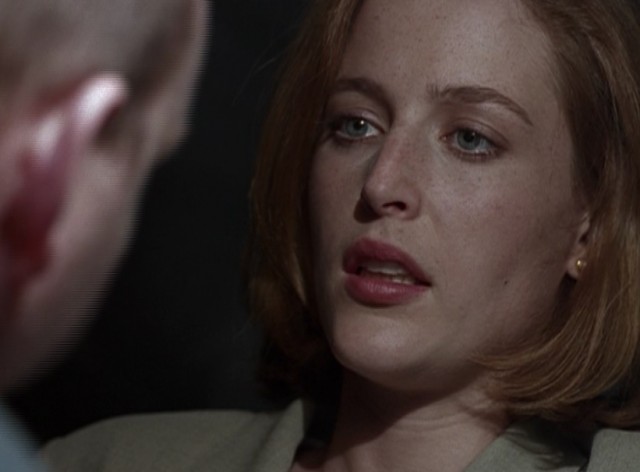
Scully, writing up her case notes later, reveals that a diary was found among Gerry’s belongings. It appears to have been an open letter to his father and lists the names of the women he was trying to “save,” with Scully’s name among them. She reflects, saying her captivity forced her to understand and empathise with Gerry. In order to pursue monsters, she writes, we must first venture into their minds—but in doing so, we risk letting them venture into ours.
This is an interesting note on which to end. I find it to be a recurrent theme throughout the show—the idea that by delving so deeply into twisted minds, investigators themselves become perverted and lose their grip on morality. It happened before in “Grotesque,” when Mulder’s former superior apparently got so engrossed in a long, difficult case that he snapped and began mimicking the murderer. (Jury’s out on paranormal involvement there, but this was certainly implied.) I’m reminded—though I probably shouldn’t be—of the Joker telling Batman that in order to stop him, he would have to break his one rule. I find this concept fascinating in law enforcement, because more than anything it conveys the abstract nature of good and evil. There are no absolutes—nothing is completely black and white, and there must necessarily be a blurring of some lines if we are to understand what we’re up against. It’s impossible to be purely moral in the pursuit of evil because evil itself, such as it is, is rarely that simple and certainly not restricted by the same code.
I sense that this is a more difficult thing for Scully to grasp than Mulder, because Scully is much more by-the-book and given to analytical risk-taking than her partner is. We’ve seen Mulder throw protocol and decorum out the window countless times when he’s been consumed by a case, but it’s extremely rare for Scully to do it. Granted, she was forced to empathise with Gerry here given the circumstances, but confronting the demons that torment him is much more difficult when you’re used to evaluating them from a distance.
On another note, I do find it ridiculously endearing to see how worked up Mulder gets when Scully’s in danger. It’s actually wonderfully en pointe for him, because it’s a perfect illustration of their differing approaches to a case. Scully gets anxious but can keep a clear head, while his frustration just builds and builds until it spills over in angry powerlessness. He gets so caught up in the theory of it all that he often neglects the reality. Bless them, book. They’re so perfectly matched.
All in all, a fine procedural episode. I actually would have liked a little bit more insight into the “thoughtograph” idea, but forgot all about it as soon as I watched the next ep. Without further ado!
The Field Where I Died
(It’s about this point I started to get the shivers.)
Mulder wants to put her under hypnosis. Scully, medical cap firmly on, tells him Melissa’s mind is in shreds and it’s too dangerous. Mulder gets angry and starts shouting, demanding to know how he could have known where the bunker was if he hadn’t been to the field in a past life. Scully gently reminds him that they’re treating Ephesian as a paranoid sociopath because he believes he was alive 100 years ago, and if Mulder believes he himself had a past life, what does that say about him?
Nevertheless, they end up putting Melissa under hypnosis. The lack of evidence against Ephesian means he and his wives will be released within hours if they don’t get concrete information on the weapons. Melissa tells them about Ephesian beating a mother and child before transforming into Sidney again, saying the guns are in Civil War bunkers. Scully quietly suggests they get a map of old battlefields of the era. Mulder ignores her and asks Melissa to go back to the field. She starts to sob, saying she misses him. Mulder’s clearly freaked out and Scully tries to say this is all a product of Melissa’s obvious mental illness, but Mulder insists on being put under hypnosis himself.
During his session, he reveals that he was a Jewish woman in Poland during the war. Samantha was there, except in this life she’s his son. Scully is there too, but she’s his father, and the CSM is there (typical) as a Gestapo officer. “Evil returns as evil,” he says, “but souls mate eternal.” He then sees himself as a man named Sullivan Biddle during the Civil War. Melissa—as Sarah Kavanaugh—is there, but she “doesn’t know” he’s waiting for her and that they’ll live again. Scully asks him if he sees any bunkers in the field, but he says his soul is tired.
Scully goes to scour some Civil War-era records. There are no maps to hidden bunkers, but she does find photos of Sullivan Biddle and Sarah Kavanaugh. When she goes back to Mulder, he asks her something: “Dana, if early in the four years we’ve been working together an event occurred that suggested…we’d been friends together in other lifetimes, always, would it have changed some of the ways we looked at one another?” She replies: “Even if I knew for certain, I wouldn’t change a day.”
I’m sorry. Let’s take a moment. I need to wail into the abyss.
(It’s the way he calls her Dana when he’s vulnerable. I am sobbing in an ugly and intensive manner.)
In one last-ditch attempt to get some information before Ephesian is released, Mulder plays a recording of the hypnosis session for Melissa. She says she doesn’t believe it. She likes the idea that people can choose who to live their lives with before they’re born, but if it were true she’d want to end her “pointless” life and start over. By definition, Mulder replies, if it were true, no life would be pointless. He pushes the photos of Sarah and Sullivan towards her. Guys, I can’t handle this. My chest has sunk into a cavity of screaming emotions.
Ephesian arrives at the door and says it’s time to leave. Melissa tears up the photo of Sarah and leaves with him. Scully informs investigators about the possibility of other bunkers.The grounds around the Seven Stars compound aren’t private property, so agents continue to search for weapons. Updating Skinner, Scully and Mulder warn that the colony may attempt to attack the agents. Ephesian sees the standoff as a holy battle foretold by Revelations, but he doesn’t believe he can win. Mulder says he may “deny himself” to his followers, thinking it will save them from evil. In other words, he’ll have them all commit mass suicide to spare them the investigation.
At the colony, the members are summoned to worship and locked in a large room. Men with guns patrol the perimeter, watching for agents outside. Ephesian reads a section of the Bible which talks about Jesus laying down his life for the faithful, such that they should lay their lives down for the brethren. They start handing out poisoned drinks. Investigators overhear him on a wire they have in the compound, and Mulder and Scully move in with the agents. The colony members open fire and one agent is shot. The line halts, but Mulder walks forward with his hands raised. Inside, it’s gone quiet. The colony have ingested the poisoned drinks and everyone’s dead. Everyone, that is, except Melissa, who comes around and sits up to survey the devastation. However, Ephesian is waiting for her. He appears over her shoulder with another poisoned drink, and this time she’s made to take it. By the time Mulder gets inside, everyone is gone—including Melissa. The episode ends with the same opening shot, him standing in the field staring at the photos of Sullivan Biddle and Sarah Kavanaugh, as the poem is read out in voiceover.
Well. I don’t know about you, but this episode absolutely floored me. I’ve only had a chance to watch it once so my thoughts are preliminary, really, but I feel like I’m not going to understand it completely until I watch it about 12 times. It’s such a beautiful, distinctive, unlikely chapter in the show’s mythology. I love the way it opens as a standard procedural episode and then morphs so unexpectedly into a supernatural, even spiritual exploration of love and meaning and humanity. It’s elegiac and moving, and a really gorgeous take on Mulder’s place in this universe. The idea that he would have had past lives makes so much sense. He’s a wistful, even sentimental character, one who trusts next to no one but who becomes deeply and intricately attached to the few people he does love. The implication that he’d bring those identities into other lives showcases the strength of his beliefs, and the deep, enduring importance of those closest to him and their place in his journey.
Melissa’s understanding of this idea is even more affecting. She says if she knew reincarnation were true, she could sacrifice what she sees as a meaningless present and choose a new, better life. Mulder’s insistence that her life does have value seems to hit home, as in the end she chooses not to kill herself—at least not until Ephesian appears, standing over her, and makes her do it. He’s like the vengeful god of this piece, or even Death incarnate, insisting on the natural order of things no matter how painful or unfair it may seem. That she couldn’t save herself, and Mulder wasn’t able to save her, speaks to an endless cycle of fleeting glimpses and transitory moments, where their souls—if they are intertwined—only grasp one another in the midst of tragedy and remain utterly powerless to do anything to stop it.
It’s a theme in Mulder’s life—he couldn’t save Samantha, he couldn’t save his father, and he couldn’t even stop his sources being murdered. It’s heartbreaking to think that even when one of them rebels against destiny, as Melissa does here in initially refusing to kill herself, they still can’t change it. What point would there even be in Melissa choosing to end her life in the hopes of gaining a better one next time, if the stars have already pre-disposed you to loss?
In many ways, this feels like it is to Mulder what “Beyond the Sea” was to Scully. There’s a similarity to the supernatural themes, the sense of purpose and longing, and the implication of place, destiny, and the closeness of other souls. Both depict our heroes as being at a loss to control or understand what’s going on around them and have lingering implications for them, their relationships with their loved ones, and their beliefs. Yet, Mulder is an inherently lonelier character than Scully. Where she was able to make a decision and find peace in it, regardless of what may actually have been going on, Mulder’s decisions here are characterised by futility. Not only can he not stop Melissa dying, he can’t prevent the mass suicide of the cult members.
He’s left as a spectator, and there is no personal peace in how it all plays out. It casts his words in “Quagmire” in a doubly poignant light. There, he implied that he had to search for answers to feel like he had some purpose in life. In many ways that search is the only constant companion he’s had; at least until Scully came along. I don’t think he ever wants to stop and reflect on how fundamentally alone he’d be without it, and yet this episode heavily implies that he may never get any closure. Is a life wasted if it is spent in pursuit of a fruitless end? If life is destined to be relived the same way over and over again, is it not as ultimately meaningless as Melissa thought?
(Thumbs up if you thought it too. “All of this has happened before. All this will happen again.”)
I think I should come back to this later, perhaps when I finish the season, and do some thematic breakdowns. I want to unpack it a bit more and analyse what it says about life and meaning and the roles of our heroes, but it’s probably too complex for one recap. Two more brief thoughts and I’ll park this til a later date:
- I am ever enamoured at the way Scully handles Mulder’s experiences. Even when she (probably rightfully) thinks he’s making the wrong decisions, she’s so gentle with him. If she is indeed the only actual tangible constant he’s allowed to have in life, it’s heartening to know he at least has someone who understands him so completely. Stop hurting me, you two. You’re so perfect together.
- A touch of humour: when the BATF agents outline the intelligence which led them to the compound, Mulder is referred to as “our man, Spooky.” I LOLed. For the first and only time this episode.
- I’m also 100% here for Scully ordering dudes to “tear this place apart.”
- The music in the final few scenes is beautifully and aptly chosen. The choral chanting mirrors the themes of the episode and lets it play out on a mournful note. But even more than that, it captures the idea of an overseeing force—maybe not a god, stricto sensu, but some kind of order or fate which holds souls and lives in check. This force may be active or inactive, or simply overseeing matters to ensure destiny plays out as written. But who or what made it so, and why?
If you need me, I’ll be sobbing into my pillow for a while. See you next week, friends. Stay spooky.
—Please make note of The Mary Sue’s general comment policy.—
Do you follow The Mary Sue on Twitter, Facebook, Tumblr, Pinterest, & Google +?




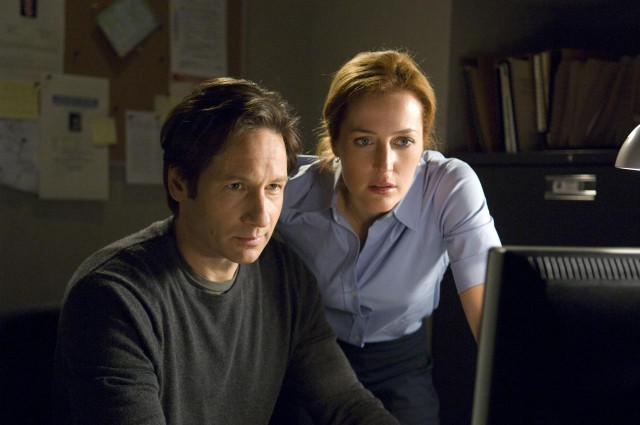
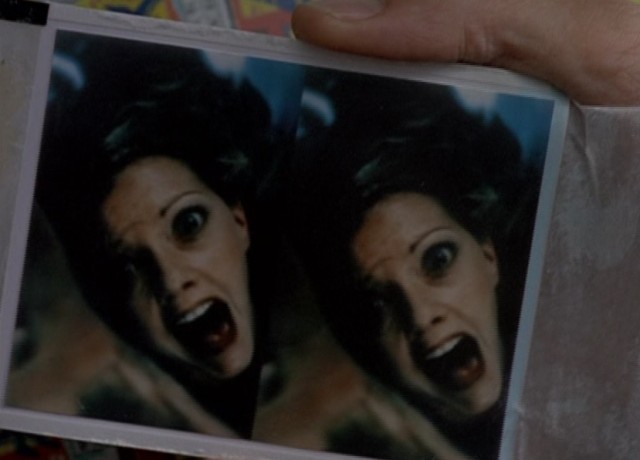
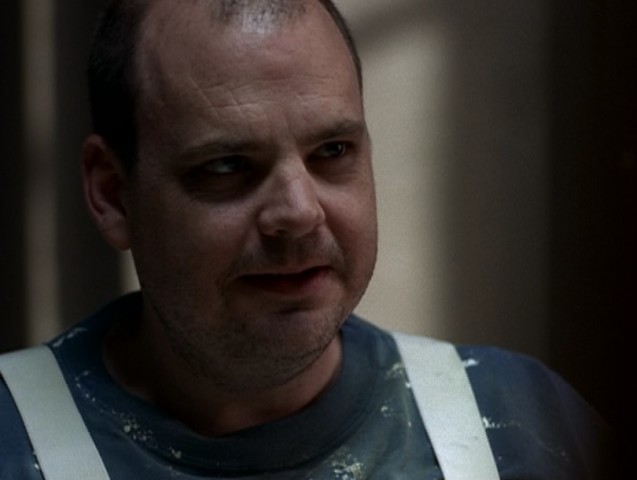
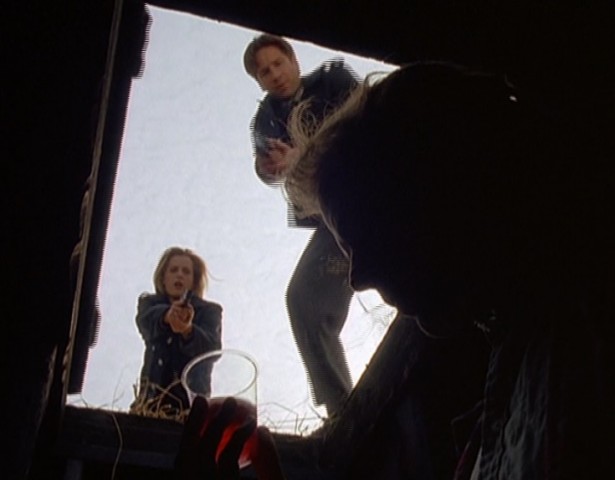
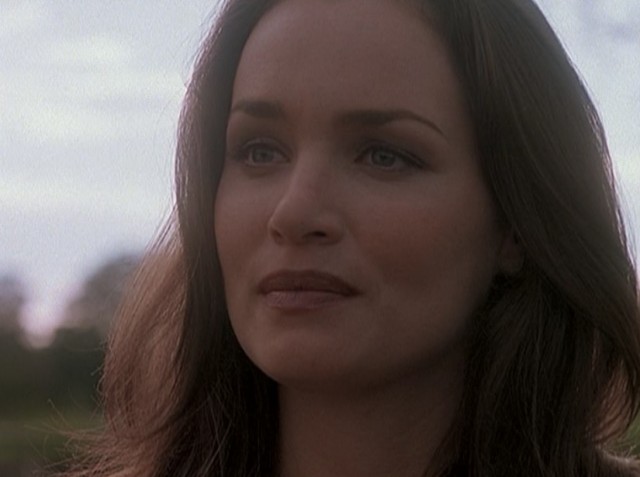
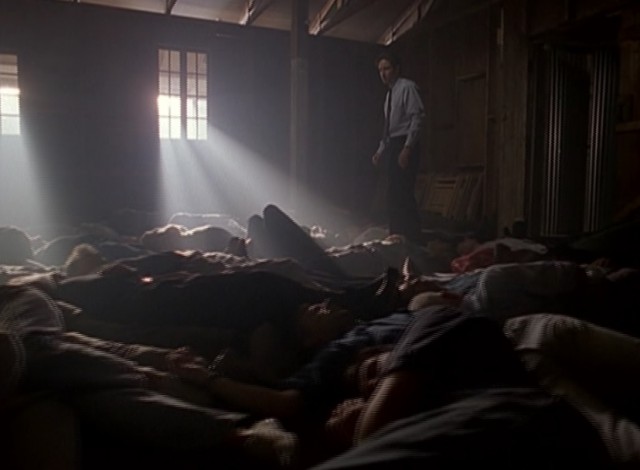
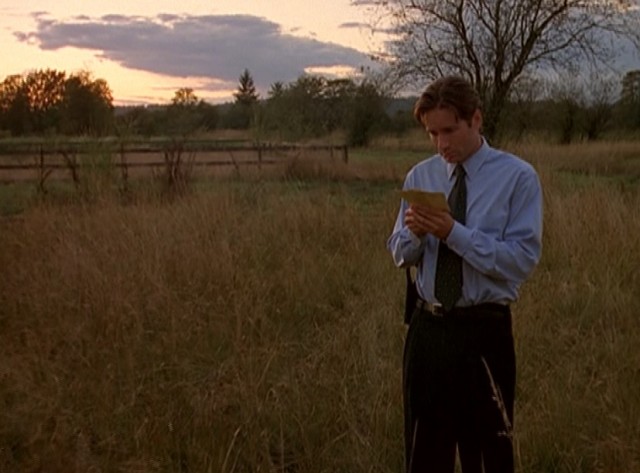




Comments are closed.